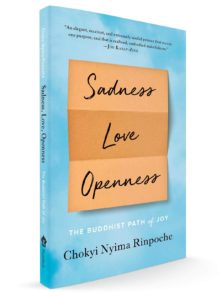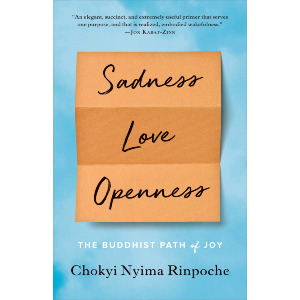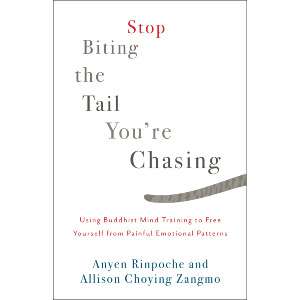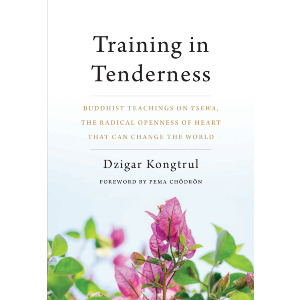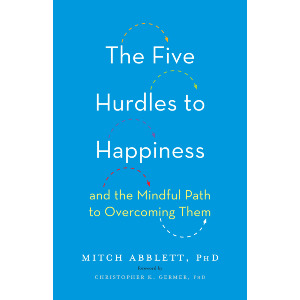Meditating While Thinking
There is, however, one particular method that benefits everyone alike: acknowledging that nothing lasts. We instinctively feel that things are going to stay more or less the same and that the people around us will remain, but that’s not the case. If we can, we should try our best to understand that things really aren’t the way they seem at all. But if that seems a bit far off at first, it’s still very good to give some thought to the impermanence of things. Even if we just take a quick look around, it’s easy to prove the truth of impermanence. So, first we must acknowledge that things don’t last. Then we need to bring that understanding to mind again and again, until we deeply understand that everything is impermanent and transient. That is a genuine Buddhist meditation.
These days, a lot of people associate meditation with sitting on a cushion, feeling calm and relaxed. So perhaps it sounds a bit strange that reflecting on impermanence can be a meditation. But across all Buddhist traditions, observing the impermanent nature of all phenomena is an important contemplative practice.
The Impact
What happens when we reflect on the impermanent nature of all things? What happens when we really take to heart the fact that everything we are fond of, everything we consider important and meaningful, is going to be lost? What happens when we understand that no matter how well we take care of ourselves, one another, or the whole world for that matter, it’s just a question of time before we will have to say goodbye to it all? When we clearly understand that that’s how life is, when we actually get that, then we will find ourselves overwhelmed by a deep sadness, a sorrow more heartbreaking than anything we have ever known, but this impact is necessary.
The Gift of Sadness
Reflecting on impermanence is not meant to make us miserable. But without that sorrow of knowing nothing will last, we will never get anywhere on our path. Sadness makes it possible for us to gain something that is much more precious than anything we could imagine. That is why we must contemplate impermanence. If there were nothing to gain, it would be foolish to think about these things—we would just be making ourselves miserable for no reason. But there’s a deep meaning to it all. When it dawns on us what the world is actually like, and we are consequently struck by overwhelming sadness, the next step comes naturally. We draw the logical conclusion that all things are impermanent and begin training in letting go.
Sadness makes it possible for us to gain something that is much more precious than anything we could imagine.
Becoming Realistic
Gradually, we are able to let go of all the things we used to chase after blindly, all the things that used to bind us and control us. We develop that ability through a discernment that we normally don’t possess. Instinctively, we begin to let go, because now we know. Whether we like it or not, sooner or later we will be forced to let everything go, so when we know this, it makes perfect sense to lessen our clinging now. Unless we take impermanence into account, we will just continue holding on to things, which in the end will only bring us pain and deprive our lives of meaning. On the other hand, if we have really understood that nothing lasts and that everything is unreal and illusory, then letting go is easy. Actually, it happens by itself without effort. Reflecting on the impermanent and illusory nature of all things is a very powerful practice.
Fresh Eyes
Understanding impermanence is no magical feat, but it dramatically, almost magically, changes our experience of the world. It makes us capable of actions that used to be impossible. We begin to look at our world and ourselves from a completely new perspective, and that profound shift in outlook is actually at the heart of all Dharma practice. In fact, we can measure our spiritual progress by how often we remember that all conditioned phenomena are impermanent. For the most accomplished practitioners, this happens quite spontaneously. They have already then let go.
Waking Up
We begin to awaken, thinking: I’m fooling myself. The way I experience the world and those around me, the way I experience my emotions and myself—it’s all wrong, and it’s painful. All the stuff that I worry about—the things I must have, the things I cannot bear to lose, and the things I try to avoid—it all just keeps me trapped. When I see things in that confused way, it has nothing to do with how they actually are. Moreover, since I am doing this to myself, I am only causing my own suffering. How sad and meaningless!
Breaking Free
We then commit ourselves to breaking free of this outlook: I’m done! From now on, I want to see things for what they really are. I won’t be a slave to my own delusions anymore. I know my perception of the world is completely out of touch with reality. All my daydreams and fantasies, all my worries and fears—they are all trivial and pointless!
As we think in this way, our wish to be free grows stronger. The power of that wish then transforms into a key that unlocks Buddhism’s vast treasury of methods and instructions.
As we think in this way, our wish to be free grows stronger. The power of that wish then transforms into a key that unlocks Buddhism’s vast treasury of methods and instructions.
Opening Up
When we realize that everything is impermanent and unreal, we open up to the pain and suffering of others. That is how love and compassion become heartfelt and genuine. No matter how many praises we sing of love and compassion, such qualities won’t awaken and flourish unless we acknowledge impermanence.
From Sadness to Strength
So many wonderful qualities are already present within us, just waiting to be discovered. The key lies in understanding that things are impermanent and unreal. Sadness, of course, is not an end in itself. But deep sorrow comes with realizing that everything we previously took to be lasting and real is actually just about to disappear—and it never even existed in the first place. Such sadness and disillusionment have a wonderful effect. Sorrow makes us let go. As we stop chasing futile and ultimately painful goals, we embark on the spiritual path with superior strength and resolve.
As we stop chasing futile and ultimately painful goals, we embark on the spiritual path with superior strength and resolve.
The Healing Power of the Dharma
Listening to the Dharma changes us. We begin to feel a profound joy, but we are also struck by tremendous sadness at our confusion and the uncertainty of our situation. So our hearts are heavy, but at the same time we feel that we need not despair, because we have at long last found something that is truly useful and beneficial. The Dharma heals. It is the best medicine, and the more we take that medicine, the more our trust in its wonderful properties will grow. With each passing day, our appreciation of the Buddhist teachings increases as our mind begins to change. That is what it’s like to be directly introduced to the impermanent nature of all things. The realization hits us hard and brings us abruptly out of our sleep. The facts are painful at first, but sadness gives way to a dawning clarity.
Moved by deep joy, we think: Finally, I have a sense of what it’s all about. This change in me is enormous. Now I know how to eradicate confusion and suffering; I know how to be free. I feel so rich, and the road lies open before me. How wonderful!
Maturing
When embarking on the path of Dharma, the mind shifts back and forth between joy and sadness. However, this process gradually matures the mind and makes us flexible, just like a child growing up. But if we really want to leave our spiritual childhood behind, the instructions have to hit home. It’s only when they pierce our heart that things begin to happen.
Related Books
$15.95 - Paperback
Stop Biting the Tail You’re Chasing
$16.95 - Paperback
$14.95 - Paperback
Pema Chödrön's Compassion Cards
$16.95 - MixedMedia
$22.95 - Hardcover
$17.95 - Paperback

Chokyi Nyima Rinpoche is a world-renowned Buddhist teacher and meditation master. He was born in Tibet in 1951 as the oldest son of his mother Kunsang Dechen, a devoted Buddhist practitioner, and his father Tulku Urgyen Rinpoche, an accomplished master of Buddhist meditation. As a young child, he was recognized as the seventh incarnation of the Tibetan meditation master Gar Drubchen and installed as the head lama of Drong Monastery in the Nakchukha region, north of the capital city, Lhasa. Read more


